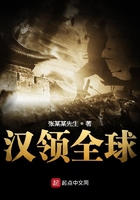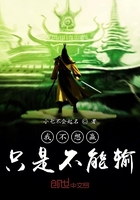'And bringing me here without any waterproof or anything,' said the Psammead still more crossly, 'when everyone knows how damp and foggy Ancient Britain was.'
'Here, take my coat,' said Robert, taking it off. Anthea spread the coat on the ground and, putting the Psammead on it, folded it round so that only the eyes and furry ears showed.
'There,' she said comfortingly. 'Now if it does begin to look like rain, I can cover you up in a minute. Now what are we to do?'
The others who had stopped holding hands crowded round to hear the answer to this question. Imogen whispered in an awed tone--'Can't the organ monkey talk neither! I thought it was only parrots!'
'Do?' replied the Psammead. 'I don't care what you do!' And it drew head and ears into the tweed covering of Robert's coat.
The others looked at each other.
'It's only a dream,' said the learned gentleman hopefully;
'something is sure to happen if we can prevent ourselves from waking up.'
And sure enough, something did.
The brooding silence of the dark forest was broken by the laughter of children and the sound of voices.
'Let's go and see,' said Cyril.
'It's only a dream,' said the learned gentleman to Jane, who hung back; 'if you don't go with the tide of a dream--if you resist--you wake up, you know.'
There was a sort of break in the undergrowth that was like a silly person's idea of a path. They went along this in Indian file, the learned gentleman leading.
Quite soon they came to a large clearing in the forest. There were a number of houses--huts perhaps you would have called them--with a sort of mud and wood fence.
'It's like the old Egyptian town,' whispered Anthea.
And it was, rather.
Some children, with no clothes on at all, were playing what looked like Ring-o'-Roses or Mulberry Bush. That is to say, they were dancing round in a ring, holding hands. On a grassy bank several women, dressed in blue and white robes and tunics of beast-skins sat watching the playing children.
The children from Fitzroy Street stood on the fringe of the forest looking at the games. One woman with long, fair braided hair sat a little apart from the others, and there was a look in her eyes as she followed the play of the children that made Anthea feel sad and sorry.
'None of those little girls is her own little girl,' thought Anthea.
The little black-clad London child pulled at Anthea's sleeve.
'Look,' she said, 'that one there--she's precious like mother; mother's 'air was somethink lovely, when she 'ad time to comb it out. Mother wouldn't never a-beat me if she'd lived 'ere--I don't suppose there's e'er a public nearer than Epping, do you, Miss?'
In her eagerness the child had stepped out of the shelter of the forest. The sad-eyed woman saw her. She stood up, her thin face lighted up with a radiance like sunrise, her long, lean arms stretched towards the London child.
'Imogen!' she cried--at least the word was more like that than any other word--'Imogen!'
There was a moment of great silence; the naked children paused in their play, the women on the bank stared anxiously.
'Oh, it IS mother--it IS!' cried Imogen-from-London, and rushed across the cleared space. She and her mother clung together--so closely, so strongly that they stood an instant like a statue carved in stone.
Then the women crowded round. 'It IS my Imogen!' cried the woman.
'Oh it is! And she wasn't eaten by wolves. She's come back to me. Tell me, my darling, how did you escape? Where have you been? Who has fed and clothed you?'
'I don't know nothink,' said Imogen.
'Poor child!' whispered the women who crowded round, 'the terror of the wolves has turned her brain.'
'But you know ME?' said the fair-haired woman.
And Imogen, clinging with black-clothed arms to the bare neck, answered--'Oh, yes, mother, I know YOU right 'nough.'
'What is it? What do they say?' the learned gentleman asked anxiously.
'You wished to come where someone wanted the child,' said the Psammead. 'The child says this is her mother.'
'And the mother?'
'You can see,' said the Psammead.
'But is she really? Her child, I mean?'
'Who knows?' said the Psammead; 'but each one fills the empty place in the other's heart. It is enough.'
'Oh,' said the learned gentleman, 'this is a good dream. I wish the child might stay in the dream.'
The Psammead blew itself out and granted the wish. So Imogen's future was assured. She had found someone to want her.
'If only all the children that no one wants,' began the learned gentleman--but the woman interrupted. She came towards them.
'Welcome, all!' she cried. 'I am the Queen, and my child tells me that you have befriended her; and this I well believe, looking on your faces. Your garb is strange, but faces I can read. The child is bewitched, I see that well, but in this she speaks truth. Is it not so?'
The children said it wasn't worth mentioning.
I wish you could have seen all the honours and kindnesses lavished on the children and the learned gentleman by those ancient Britons.
You would have thought, to see them, that a child was something to make a fuss about, not a bit of rubbish to be hustled about the streets and hidden away in the Workhouse. It wasn't as grand as the entertainment at Babylon, but somehow it was more satisfying.
'I think you children have some wonderful influence on me,' said the learned gentleman. 'I never dreamed such dreams before I knew you.'
It was when they were alone that night under the stars where the Britons had spread a heap Of dried fern for them to sleep on, that Cyril spoke.
'Well,' he said, 'we've made it all right for Imogen, and had a jolly good time. I vote we get home again before the fighting begins.'
'What fighting?' asked Jane sleepily.
'Why, Julius Caesar, you little goat,' replied her kind brother.
'Don't you see that if this is the year fifty-five, Julius Caesar may happen at any moment.'
'I thought you liked Caesar,' said Robert.
'So I do--in the history. But that's different from being killed by his soldiers.'
'If we saw Caesar we might persuade him not to,' said Anthea.
'YOU persuade CAESAR,' Robert laughed.















